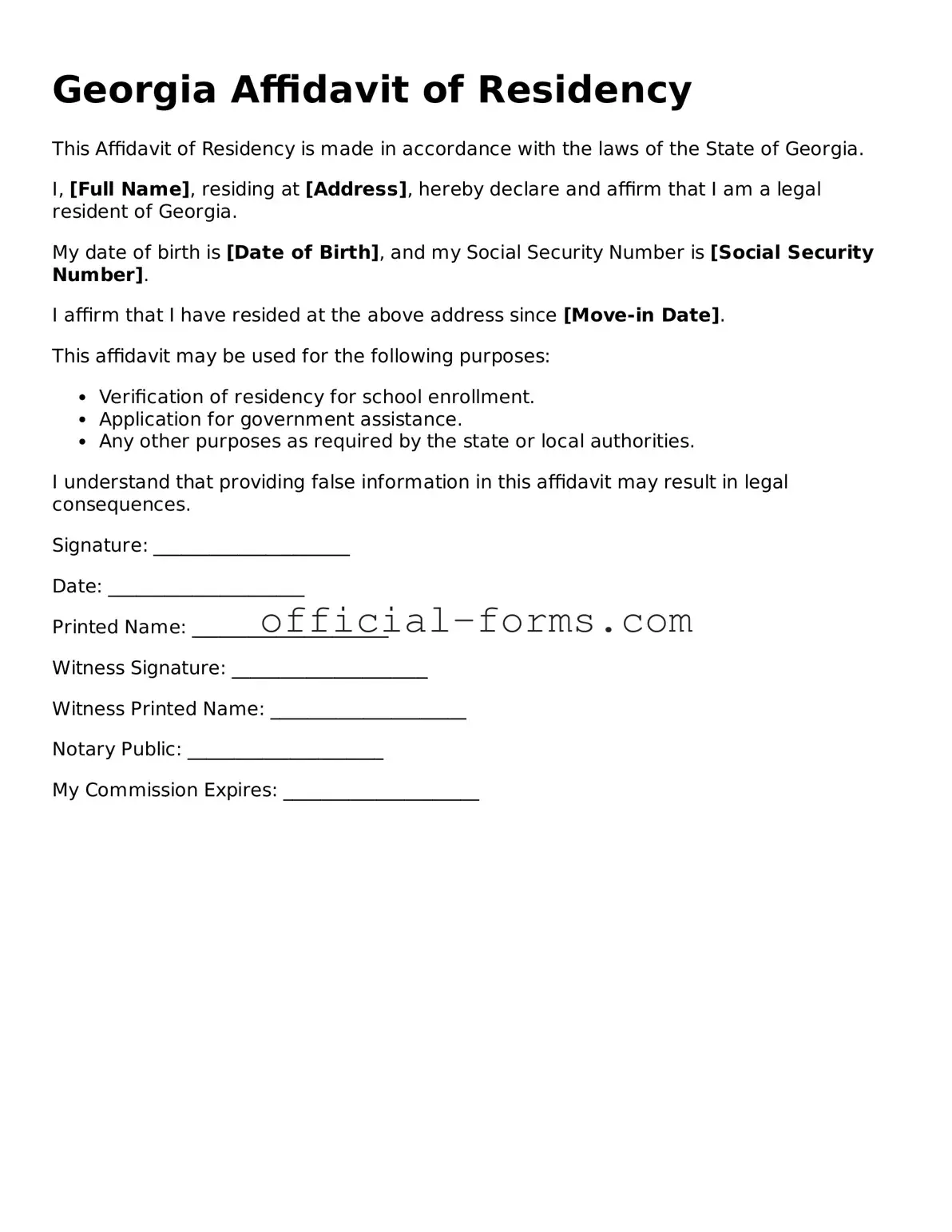Official Georgia Affidavit of Residency Document
The Georgia Affidavit of Residency form is a legal document used to confirm an individual's residence within the state of Georgia. This form serves various purposes, including establishing residency for school enrollment or verifying residency for legal matters. Understanding its requirements and uses is essential for those navigating residency issues in Georgia.
Open My Affidavit of Residency Now

Official Georgia Affidavit of Residency Document
Open My Affidavit of Residency Now
Don’t leave your form incomplete
Finish Affidavit of Residency online quickly from start to download.
Open My Affidavit of Residency Now
or
➤ PDF
